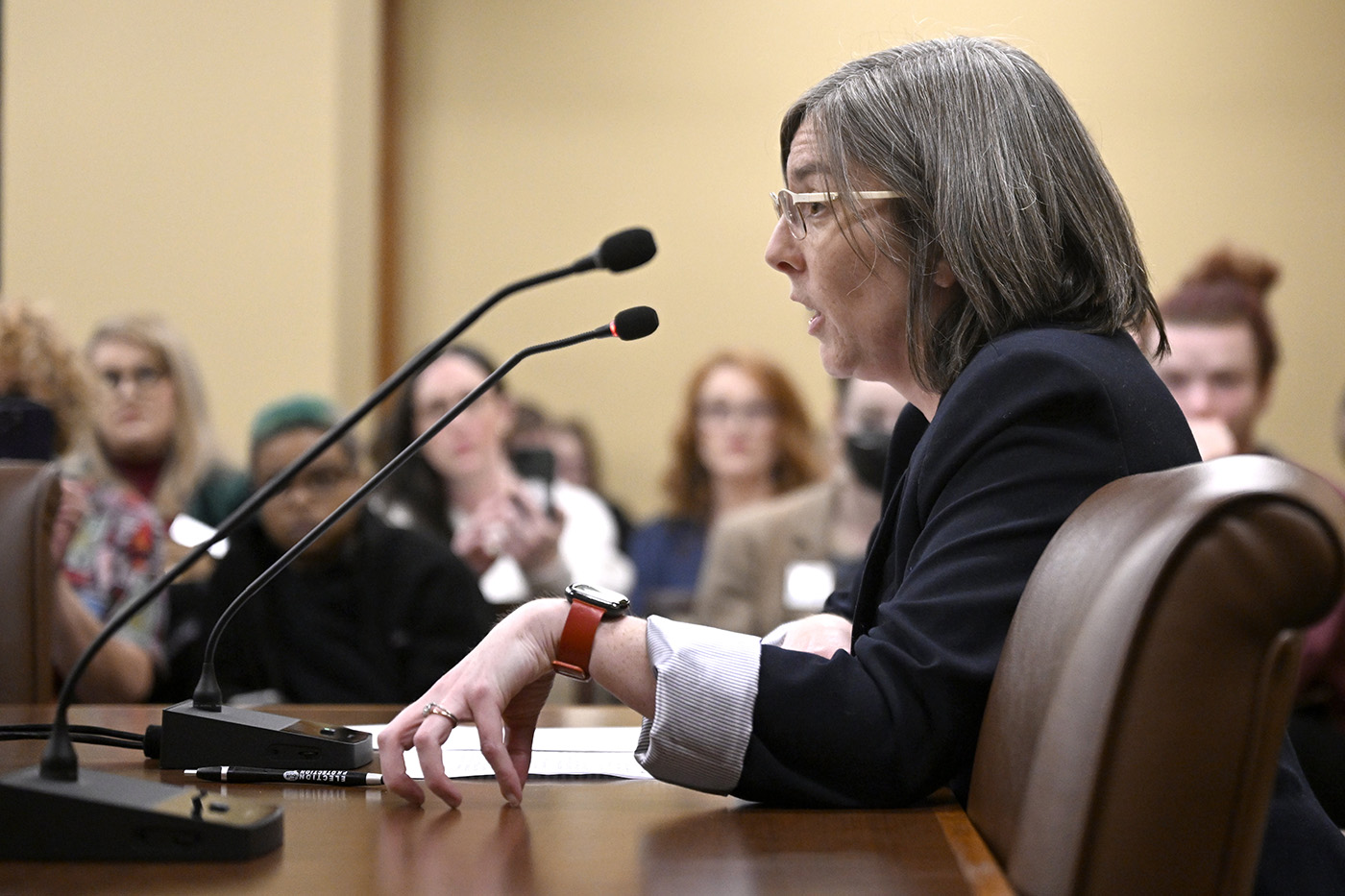Parents and activists weighed in during a House committee meeting Thursday on a bill that would prevent transgender people from using the restroom of their choice while at school.
House Bill 1156, sponsored by Rep. Mary Bentley, R-Perryville, would require public schools and open enrollment public charter schools to bar people from using a restroom that does not correspond with the sex listed on their birth certificate. The bill applies to places at schools where people "may be in various stages of undress" around others, which includes restrooms, locker rooms, changing rooms and shower rooms.
The House Education Committee did not vote on the bill, as legislative staff had yet to complete a required fiscal impact statement after the bill was amended earlier this week, according to committee chair Brian Evans, R-Cabot. The committee will vote on the bill at its next meeting Tuesday, Evans said.
Instead, committee members heard testimony in a packed room inside the state Capitol, mostly from those who came to speak against the bill. Bentley said she filed the bill after speaking with two members of the Conway School Board, which passed a similar policy in October that restricts transgender students from using the restroom of their choice.
"Every child in our school and each school has a right to privacy and to feel safe in their bathrooms at school," Bentley said.
Parents of transgender youths, transgender adults and activists who spoke said the bill singles out transgender students, many of whom have to deal with being shunned and singled out by others.
"Unless you have experienced walking into a bathroom and having somebody tap you on the back and tell you that you are in the wrong one when you are actually in the bathroom of your assigned gender, you do not understand the humiliation that exists," said Judson Scanlon, a parent and former Democratic candidate for state representative from North Little Rock.
Conway School Board members Linda Hargis and Dr. David Naylor Jr. spoke in favor of the bill, saying it was about making sure female students feel comfortable in the restroom.
"Our kids have the right to feel comfortable and safe in their space," Hargis said. "And without this bill and the policy, we are creating a perfect storm."
Toni Rose, state director of the Congressional Prayer Caucus Foundation and a supporter of the bill, said some women feel uncomfortable using the same bathroom as transgender people.
"In our rush to make sure the [transgender] child is comfortable and safe, I don't know if we forgot, or we ignored, the 50% of the population in our schools that are afraid," Rose said. "We are afraid of boys, we are afraid of men, in our places that we disrobe and expect some privacy."
Clayton Crockett, the father of a trans student, said the bill's supporters don't understand the unintended consequences of the legislation on trans youth.
"I can tell you that she feels targeted, she feels discriminated against, she feels bullied, she feels signaled out," Crockett said. "She does not want to go to school. She is depressed."
The bill also requires schools to provide "a reasonable accommodation," such as a private restroom, for transgender students or others who may not be comfortable with the restroom school officials designate for them. The bill also states students do not have to "share sleeping quarters with a member of the opposite sex" unless the person is a member of the student's family.
Superintendents, principals or the administrative head of an open enrollment public charter school who are found to be in noncompliance with the bill will receive a 15% salary cut in the following fiscal year. The bill also said parents of students who encounter a member of "the opposite sex" in a multiple occupancy restroom "shall have a cause of action."
Whether the bill would be constitutional is an open question with supporters and opponents agreeing a legal challenge is likely if the bill becomes law. Bentley cited an opinion from the 11th U.S. Circuit Court of Appeals that upheld a similar law in Florida.
Sarah Everett, policy director at the American Civil Liberties Union of Arkansas, countered by saying the 4th and 7th U.S. Circuit Courts of Appeals came to "opposite conclusions" when deliberating on similar restroom bills.
"I think it's helpful to look to the [U.S.] Supreme Court, who has said that discrimination against trans people is sex discrimination, illegal under federal law," Everett said.
House Bill 1156 is not the first attempt by state lawmakers to regulate school restroom usage in recent years. In 2017, Republican Sen. Linda Collins-Smith of Pocahontas sponsored a bill that would have required people to use restrooms at schools and state facilities that correspond with the sex listed on their birth certificate, similar to a North Carolina law. The Arkansas bill did not come to a vote before the Legislature adjourned.
The North Carolina law, which was later amended, drew a wave of backlash that included boycotts, condemnations from large corporations and the NBA, which decided against hosting its All-Star Game in Charlotte in 2017.
 Sarah Everett, policy director of the Arkansas American Civil Liberties Union, speaks against House Bill 1156, which would require students to use the bathroom of their sex assigned at birth, during a meeting of the House committee on Education at the State Capitol in Little Rock on Thursday. (Arkansas Democrat-Gazette/Stephen Swofford)
Sarah Everett, policy director of the Arkansas American Civil Liberties Union, speaks against House Bill 1156, which would require students to use the bathroom of their sex assigned at birth, during a meeting of the House committee on Education at the State Capitol in Little Rock on Thursday. (Arkansas Democrat-Gazette/Stephen Swofford)